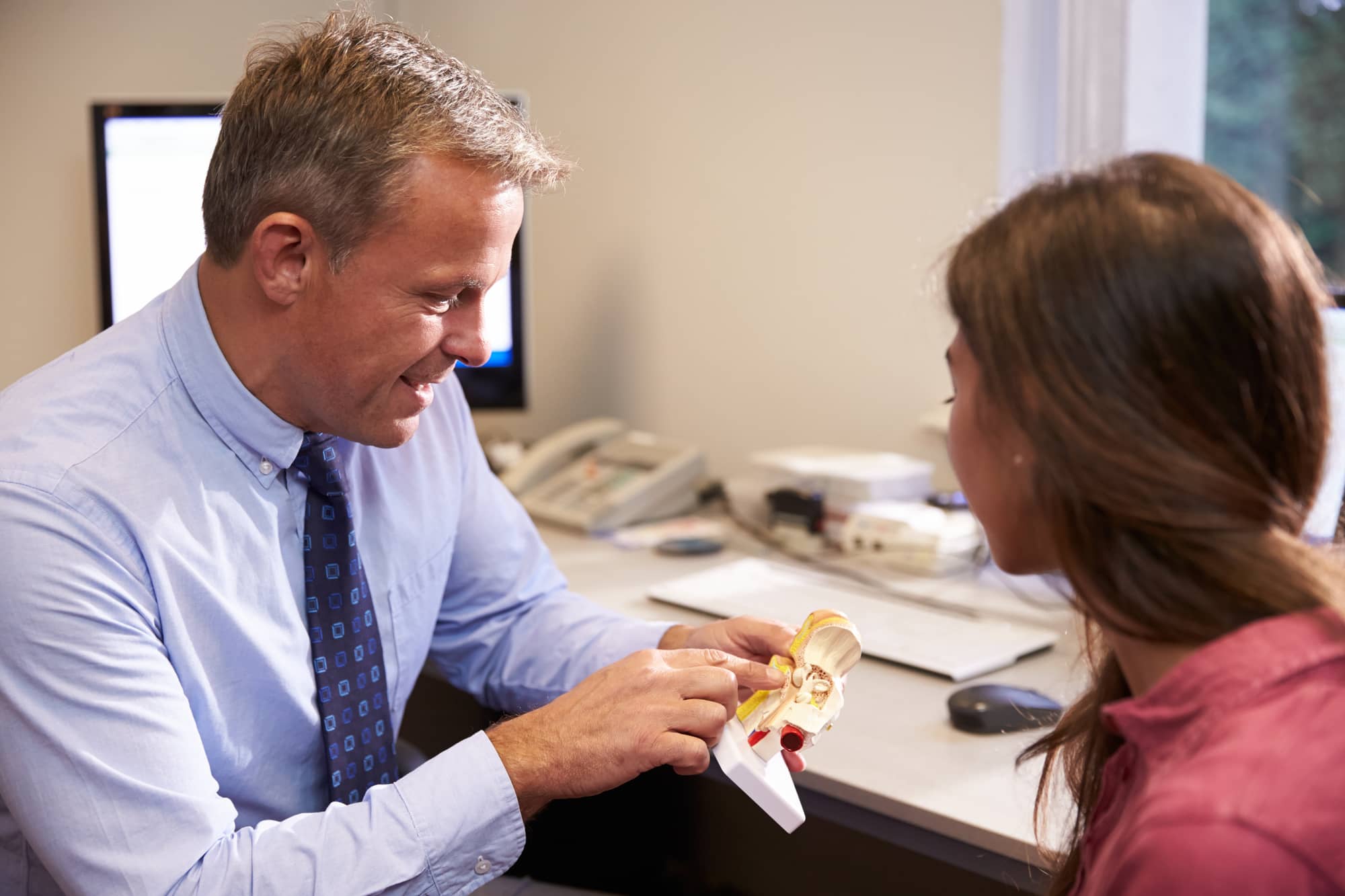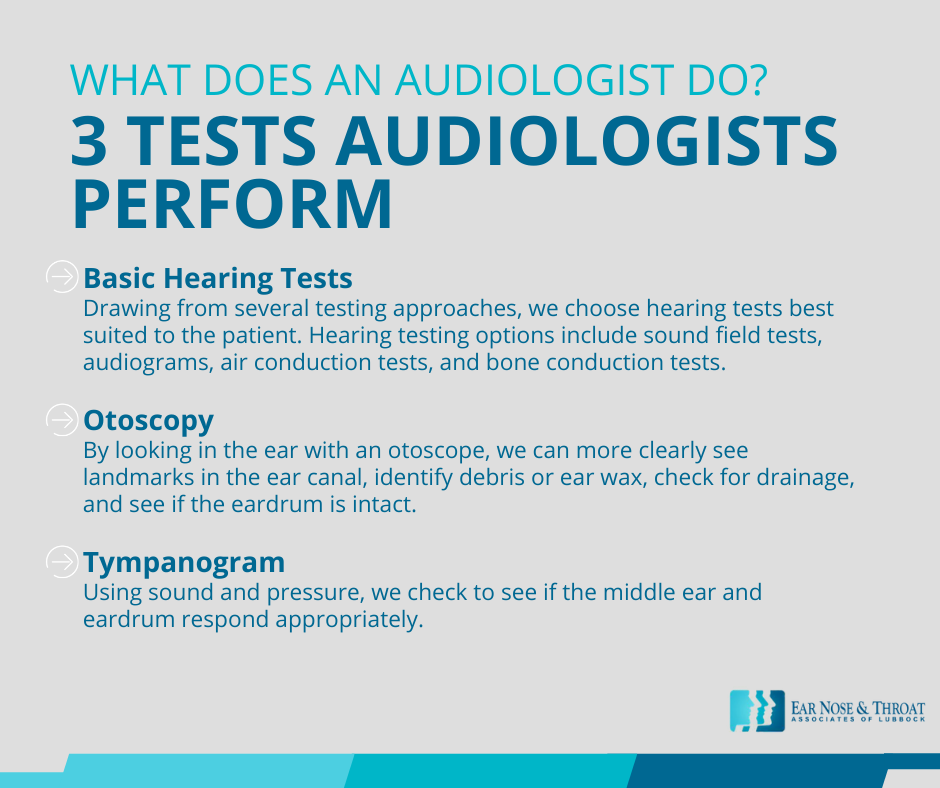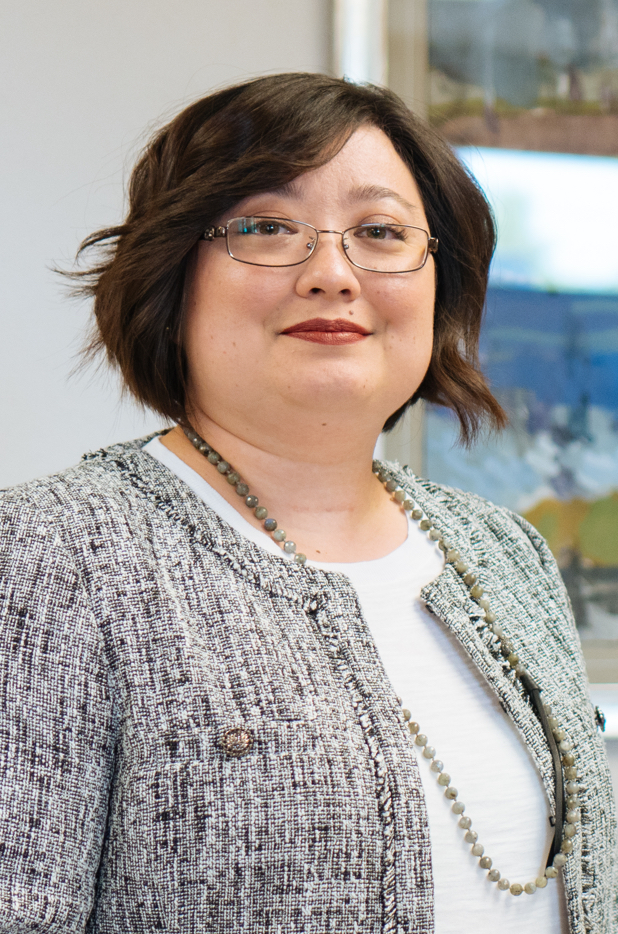What Does an Audiologist Do? Everything You Need to Know

There seems to be a specialist for each body part, age-group, and issue. With so many specialists, how do you know who to visit?
If you’re having a hearing-related issue, an Audiologist is likely the best specialist to address your concerns. Does that mean you’re destined for hearing-aids?
Not necessarily.
In hearing-related services, many people wonder, “What does an Audiologist do?” In fact, they often confuse Audiologists with hearing aid technicians who often do not have much training.
But an Audiologist does much more than work with hearing aids. Audiologists have an advanced degree, usually a Doctorate or Master’s of Audiology and provide a variety of hearing-related services such as:
- Testing hearing on adults and children
- Testing for balance and vestibular problems in adults
- Assisting doctors in evaluating middle ear, outer ear, and inner ear abnormalities.
- And of course, offering hearing-aid services.
If you’re deciding if an appointment with an Audiologist is the best option for you, here’s what you need to know:
What Does an Audiologist Do, Exactly?
Audiologists treat hearing-related issues in patients of all ages.
In order to best understand what’s happening in the patient and what may be contributing to hearing problems, we rely on these three types of tests:
Basic hearing tests
Drawing from several testing approaches, we choose hearing tests best suited to the patient. Hearing testing options include:
- Sound field tests
- Audiograms
- Air conduction tests
- Bone conduction tests
Otoscopy
By looking in the ear with an otoscope, we can more clearly see landmarks in the ear canal, identify debris or ear wax, check for drainage, and see if the eardrum is intact.
Tympanogram
Using sound and pressure, we check to see if the middle ear and eardrum respond appropriately.
What does an Audiologist do with these tests? They use them to evaluate hearing, vestibular problems, tinnitus… and even wax buildup.

Types of Hearing Tests
Much of an Audiologist’s work focuses on hearing testing for patients of all ages. Even in a world where some healthcare practitioners are attempting to transition to virtual practices, some tests will always need to be done in person.
For children, we do various types of hearing testing for ear infections, speech delays, or suspected hearing loss.
For children between the ages of six months and three years old, we use sound field testing to evaluate hearing. Since a child at this age is too young to raise their hand to indicate when and where they hear a sound, we use sound to cue behavioral responses. Children sit in a booth while we play sounds from speakers on either side of the child to reinforce their head turns. When they turn and look towards the sound, they indicate they hear a noise. We then compare their responses with how children of a similar age with normal auditory function and development respond.
When kids come in with an ear infection or fluid on their ears, we start with a baseline hearing test. This helps us evaluate what kind of hearing they have with the active fluid and infection. We then test again after treatment to evaluate if hearing has returned to a more normal level.
If there is no infection, we may need more specific tests to understand the child’s hearing. In these cases, we work directly with an ENT for ear-specific testing, especially if there’s a concern of more permanent hearing loss.
School-aged children (ages 5-18) typically visit an Audiologist when they fail a school hearing screening. Most school systems conduct annual tests to evaluate for hearing loss. When they see an abnormality, they screen the child again. If the child still doesn’t pass the hearing test, they refer them to an Audiologist for additional testing.
For these students, we conduct a full audiogram, tympanogram, and examine their ears. If they have an ear infection or fluid on their ears, we send them to the physician for medical treatment.
If we see hearing loss unrelated to infection, we try to determine what kind of hearing loss the student is experiencing:
- Conductive hearing loss — related to the outer or middle ear
- Sensory Neural Hearing loss — related to the inner ear or the pathway from the inner ear to the brain
These results help the physician address the issue and make recommendations to the parent and school system about how to best support the student.
For adults, we follow similar testing procedures as with older children. We conduct multiple hearing tests and a full ear exam to best evaluate what type of hearing loss the patient is experiencing. This information helps determine the patient’s next steps.
Vestibular Problems
We also evaluate patients with vestibular symptoms, including dizziness and balance. However, if you’re experiencing these issues, we always recommend seeing your primary care doctor first. A primary physician needs to evaluate potential cardiac, pulmonary, medication or migraine involvement before we evaluate for inner ear issues.
Tinnitus
Tinnitus is a way of describing the sound a person hears that’s not in the environment. It’s typically centrally generated and occurs most often in patients with hearing loss.
Wax Buildup
Ear wax is naturally produced by the ear. It’s supposed to be there — but for some, it accumulates and negatively impacts hearing. When you have ear wax occlusion, you can’t hear well.
However, we don’t recommend patients digging in their ear — with anything, including Q-Tips.
You have a sensitive tympanic membrane — we all do. If you damage it, you’ll experience pain and perhaps hearing loss.
If you have significant wax buildup, visit your primary care doctor, ENT, or Audiologist to have the wax removed under a microscope. We’ll protect the eardrum while cleaning the ear as much as possible.
Just don’t do it yourself. There’s simply too much risk for damage or infection.
How to Prepare For Your Audiologist Appointment
If you’re coming in for the first time, bring any results from previous hearing tests. We can use this information to track any pattern or progression of hearing loss. Otherwise, just be ready to tell us your history and we’ll direct you through the testing.
Also, be careful what you read online. Most patients are not dealing with the worst-case scenario of their symptoms. It’s best to consult with your primary care doctor, then come see us if necessary so we can accurately identify what’s going on.
What to Expect If You Need a Hearing Aid
When a patient comes in complaining that hearing loss is affecting their daily communication, family life, or work environment, we ask patients to sit in for a full hearing test so we can identify the type of hearing loss they’re experiencing.
First, we want to check to see if they have a need for medical evaluation. If they have sudden-onset hearing loss, sudden-onset tinnitus, active fluid or infection, sudden-onset dizziness, or asymmetric hearing loss, they may need further evaluation or medical treatment. We always address medical issues before we even consider hearing aids.
Once we determine a patient does not need medical treatment, we move to a hearing aid consultation. During this free consultation, we talk about hearing loss in detail, helping the patient understand the anatomy of their ear, and what hearing aids will and won’t do. Hearing aids are an amazing assistant device that gives patients more access to speech and environmental sounds, but they don’t return hearing to normal. Hearing loss results from damage somewhere along the auditory pathway. That damage is not going to be repaired with a hearing aid. However, hearing aids will give you more access to sounds that help you better communicate with family, friends, and coworkers.
If you suspect hearing loss or another hearing-related issue, an audiologist may be just the specialist you need. We’ll do our best not only to identify the source of your problem, but to help you find a solution that makes your daily life a little easier.
Dr. Thackrey has been providing Audiology services to West Texas residents since 2006. She is licensed in the State of Texas and is a member of the American Speech-Language-Hearing Association (ASHA). She specializes in hearing evaluations of all ages, but is especially skilled in the selection, fitting, programming and servicing of hearing aids. Learn more about Dr. Thackrey
Categories:







